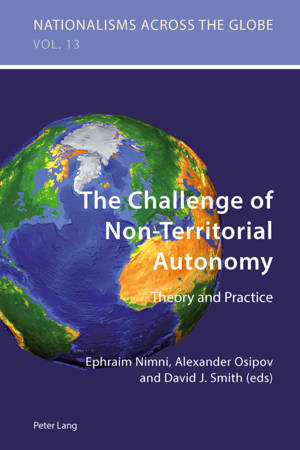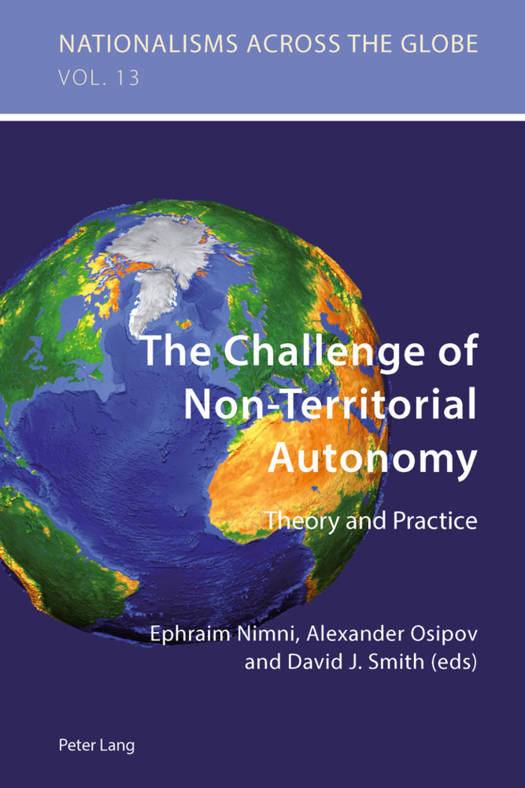
- Afhalen na 1 uur in een winkel met voorraad
- Gratis thuislevering in België vanaf € 30
- Ruim aanbod met 7 miljoen producten
- Afhalen na 1 uur in een winkel met voorraad
- Gratis thuislevering in België vanaf € 30
- Ruim aanbod met 7 miljoen producten
Zoeken
The Challenge of Non-Territorial Autonomy; Theory and Practice
Theory and Practice
€ 81,45
+ 162 punten
Omschrijving
This book explores and evaluates non-territorial autonomy (NTA), an important modality of ethnic and religious diversity management. Whereas multicultural liberal democracies sincerely champion equality and individual human rights, they often have considerable difficulty in accommodating culturally diverse minority communities. In most cases, minority communities do not reside within a compact space, making any territorial representation impossible. This brings into focus modalities of NTA as a possible alternative approach. NTA takes a variety of different forms, such as consociationalism or national cultural autonomy, and also encompasses other forms of representation, such as frameworks for accommodating indigenous peoples, juridical autonomy extended to religious communities, or elements of some models of multiculturalism. Using both theoretical and empirical approaches, and also including the work of legal practitioners, the essays within this volume examine the challenges and possible solutions offered by different NTA models for the effective participation of minorities in public life, addressing issues such as the limits and/or possibilities of implementing NTA models in liberal democracies, the extent to which NTA approaches can serve the goals of European integration and the European minority protection framework, and the possible role of NTA in resolving protracted territorial conflicts.
Specificaties
Betrokkenen
- Uitgeverij:
Inhoud
- Aantal bladzijden:
- 258
- Taal:
- Engels
- Reeks:
- Reeksnummer:
- nr. 13
Eigenschappen
- Productcode (EAN):
- 9783034317146
- Verschijningsdatum:
- 27/08/2013
- Uitvoering:
- Paperback
- Formaat:
- Trade paperback (VS)
- Afmetingen:
- 150 mm x 224 mm
- Gewicht:
- 408 g

Alleen bij Standaard Boekhandel
+ 162 punten op je klantenkaart van Standaard Boekhandel
Beoordelingen
We publiceren alleen reviews die voldoen aan de voorwaarden voor reviews. Bekijk onze voorwaarden voor reviews.










